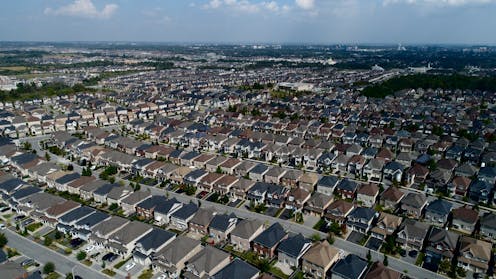New Nickname For Hogtown
I suppose it is okay to pick on TO since the citizens there are feeling so good about their NBA championship team. (Although I am not sure why. There are more local fish in Toronto's Ripley's Aquarium than there are Canadian players on the Raptors, some of whom were just purchased fresh this year and will be gone by the next one.) So I am suggesting as a new nickname, "Toronto the Carbuncle" rather than "Toronto the Pustule" since a carbuncle is bigger and worse than a pustule. It seems to me closer to the truth than "Toronto the Good".
The reason for this rant now is because I just ran across a rather grim assessment of Toronto offered at the turn of this century. Things have not gotten better, although I must confess that real estate prices have gone up. For involved historical and economic reasons the "Big Smoke" seems to be where many Canadians want to be and have to go since there are not many other urban options. Citizens from other countries are also flocking there and "Diversity" itself seems a big draw. For now.
In any case, the rather negative account below is provided by someone who was simply trying to bypass Toronto about twenty years ago. Things have not gotten better. Among the many reasons not to like Toronto is that it is a major obstacle for those who are simply trying to go someplace more desirable.

"I don't know what the upper limit of population for a functioning human society is, but I do know that Greater Toronto exceeded it long ago. The city is a whirl of people constantly crossing each other's paths, like neutrinos in a cyclotron. The pace and volume of traffic, the raw, wounded-looking land beneath the new subdivisions and shopping centers, and the general sense of noise and hurry made me feel thoroughly jangled, like a mouse caught in a bagpipe. We turned north on 404 well before the city center, trying to escape the worst of it, and maybe we did: but if so, I would not want to see the worst. The freeway ended and we found ourselves facing traffic lights. Cars shuffled and crushed between them; trucks roared and fumed. Everywhere there was new construction - new homes, new strip malls, new office buildings. This, John Hartig had told us, was the finest agricultural land in Ontario. This has not stopped people from paving it. Hundreds of thousands of acres of it. The property-rights people have clearly won the war here. They can go to bed and sleep well. I wonder what they are planning to eat."
from: Great Lakes Journey: A New Look at America's Freshwater Coast, William Ashworth, p.250. This "new look" was taken in 2000. The author had taken an earlier tour of the area in the 1980s and the result was: The Late, Great Lakes: An Environmental History.
Sources:
Toronto has so many nicknames there is an entry in Wikipedia for "Name of Toronto".
See also: "Top 8 Nicknames for the City of Toronto".
Post Script:
About the only positive economic economic news here in London is found in the real estate sector. Torontonians are selling their expensive properties to buy cheaper homes here. As a result more fine agricultural land is being paved over and there will soon be nothing but tarmac from Tillsonburg to Tilbury. It makes you wonder what we are planning to eat.
Not only is Toronto difficult to get through, it is a rather undesirable destination. I admit that I really don't know the city well and visit infrequently. When I do, I am disappointed. Given my harsh assessment I feel compelled to undertake some field research and will visit this summer. Although the lakefront will not yet be improved by "Sidewalk Labs", some scouts from New York have suggested a visit to the Sterling Road area. I am not overly optimistic: "In Toronto, An Industrial Stretch Has Its Breakout Moment," Michael Kaminer, NYT, July 5, 2019.
"Dismissed for decades as a postindustrial wasteland, Sterling Road, a zigzagging half-mile strip of old factories and warehouses, is getting a second life. Last summer, the North American debut of a splashy Banksy exhibition in an empty warehouse there drew a global spotlight. With the arrival of Toronto’s Museum of Contemporary Art (MOCA) last fall, Sterling Road is newly hip, its appeal broadening beyond the small cadre of tuned-in artists and bohemian types who for years have had it to themselves. The street’s cavernous structures have also quickly become hot real estate."
No comments:
Post a Comment